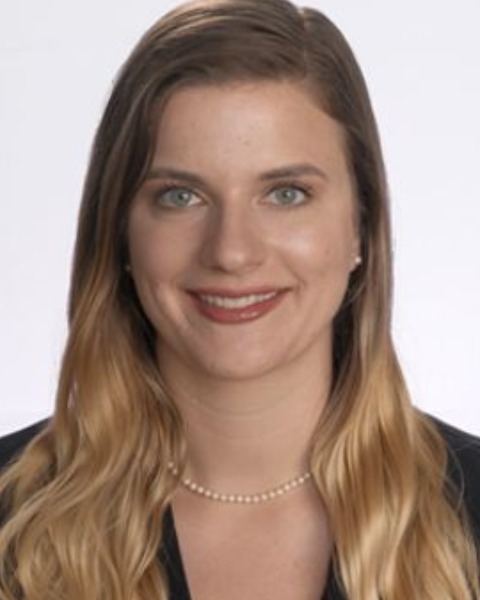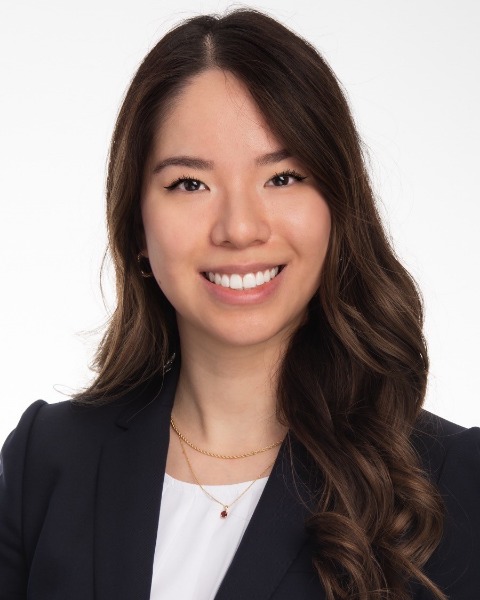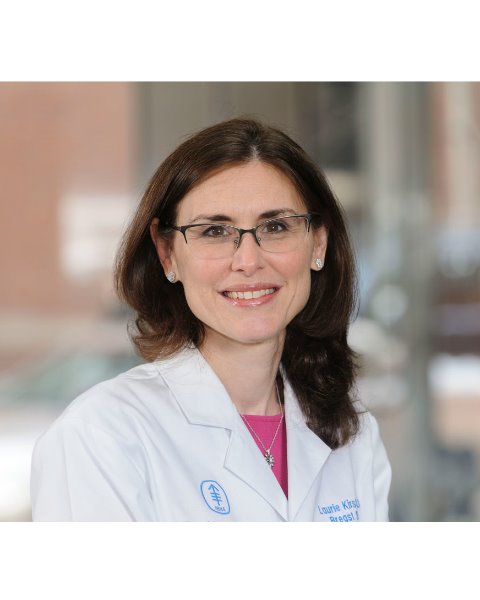Quality Improvement/Clinical Outcomes
E387: Addressing Barriers to Completing Radiotherapy through a National Quality Improvement Project

Lauren M. Janczewski, MD, MS
Clinical Scholar
American College of Surgeons, United States
Lauren M. Janczewski, MD, MS
Clinical Scholar
American College of Surgeons, United States
Lauren M. Janczewski, MD, MS
Clinical Scholar
American College of Surgeons, United States- ER
Eileen Reilly, MSW
Quality Improvement Manager
American College of Surgeons, United States 
Kelley Chan, MD
Clinical Scholar
American College of Surgeons
Oak Park, Illinois, United States- SS
Shayla Scarlett, MBA
Assistant Director, Community Outreach, Engagement, and Equity
George Washington Cancer Center, United States - SF
Shelley Fuld Nasso, MPP
Chief Executive Officer
National Coalition for Cancer Survivorship, United States - SH
Susan Hedlund, MSW
Assistant Professor of Medicine
Division of Hematology/Medical Oncology, Oregon Health & Science University, United States - CB
Camille Biggins, MHA
Quality and Accreditation Program Manager
Virginia Mason Franciscan Health, United States - RS
Rebecca A. Snyder, MD, MPH
Associate Professor of Surgery
Department of Surgical Oncology, The University of Texas MD Anderson Cancer Center, United States - EW
Elizabeth Wick, MD
Professor of Surgery
Department of Surgery, University of California San Francisco, United States - KY
Katharine Yao, MD
Surgical Oncologist
Department of Surgery, NorthShore University HealthSystem, Evanston, IL, United States - BH
Bruce Haffty, MD, MS
Professor of Radiation Oncology
Department of Radiation Oncology, Rutgers Cancer Institute of New Jersey, United States - CS
Charles Shelton, MD
Radiation Oncologist
Department of Radiation Oncology, Outer Banks Health, United States - AY
Anthony D. Yang, MD, MS
Professor of Surgery
Department of Surgery, Indiana University School of Medicine, United States - HN
Heidi Nelson, MD
Former Medical Director
American College of Surgeons, United States 
Laurie J. Kirstein, MD
Associate Professor of Surgery
Department of Surgery, Memorial Sloan Kettering Cancer Center
middletown, NJ, United States
ePoster Abstract Author(s)
Submitter(s)
Author(s)
Many patients face barriers to completing cancer treatment which may impact oncologic outcomes. For example, missing ≥3 radiation treatments is associated with increased locoregional recurrence; however, some reasons for missed treatments may be modifiable. We sought to evaluate the frequency and reasons for missed radiotherapy among accredited cancer programs participating in a national quality improvement (QI) project addressing barriers to care.
Methods:
This national QI project enrolled 354 accredited cancer programs, recording all patients scheduled for a 15- to 45-day planned course of curative intent radiotherapy over 3 separate, 60 day data collection periods (March-August 2023). Programs prospectively identified patients who missed ≥3 radiation treatments (defined as “at risk” for worse oncologic outcomes), and queried reasons for missed radiotherapy. Kruskal-Wallis tests assessed differences in missed treatments by program type (e.g., academic vs community), geographic location, and disease site.
Results:
Overall, 336 (94.9%) accredited cancer programs identified at risk patients, totaling 3,878 (9.2%) patients who missed ≥3 treatments. The median percentage of at risk patients at participating programs was 10.0% (IQR 5.7-18.1%). Differences by program type were not observed. Programs located in the Midwest (median 14.7%, IQR 7.7-21.6%) had the highest proportion of at risk patients compared to Northeast (median 13.9%, IQR 9.5-19.1%), South (median 13.2%, IQR 8.6-21.1%), and West region programs (median 8.8%, IQR 5.3-17.4%, p=0.037). Patients with rectal and gynecologic cancers most frequently missed ≥3 treatments (Table), while patients with breast and prostate cancer were least at risk (p< 0.001). Modifiable reasons for missed treatments most frequently included illness unrelated to treatment toxicity (52.4%), transportation issues (26.0%), conflicting appointments (17.2%), and no longer wishing to pursue treatment (13.9%). Many programs (65.9%) reported initiating interventions to address identified barriers. The median percentage of at risk patients has decreased from 10.4% (IQR 6.5-17.8%) to 7.7% (5.3-18.1%), equating to 1,009 fewer at risk patients over the study period.
Conclusions:
Patients who miss ≥3 radiation treatments are highly prevalent among accredited cancer programs nationwide and vary by geographic location and disease site. Future work developing interventions in response to identified barriers in this national QI project may be scalable to other areas of cancer care and improve outcomes.
Learning Objectives:
- Upon completion, participants will be able to characterize the prevalence of missed radiotherapy treatments among accredited cancer hospitals.
- Upon completion, participants will be able to describe the most frequent reasons for missed radiotherapy treatments among accredited cancer hospitals.
- Upon completion, participants will be able to discuss the importance and value of participating in quality improvement to improve patient care and outcomes.
